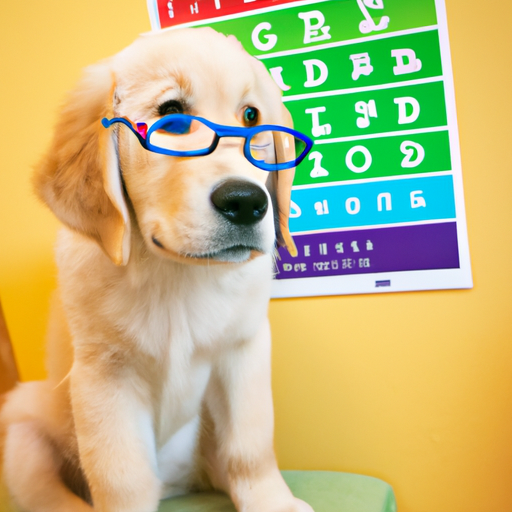When you bring a new puppy into your home, it’s essential to ensure its health and wellbeing. One significant aspect of this is to identify any potential vision problems. This guide will provide you with all the necessary information to understand if your puppy might be blind.
1. Understanding Puppy Vision Development
Before you jump to conclusions, keep in mind that puppies are born with their eyes closed. They generally open their eyes around two weeks of age but their vision isn’t fully developed until they’re about eight weeks old.
- Newborn to 2 weeks: Eyes are closed
- 2 to 3 weeks: Eyes are open, but vision is poor
- 3 to 8 weeks: Vision gradually improves
2. Recognizing the Signs of Blindness
Your puppy may exhibit several signs that indicate vision problems. Here are some key indicators to look out for:
- Bumping into walls and furniture
- Difficulty finding toys or food
- Reluctance to explore new environments
- Excessive cautiousness or timidness
- Unusual eye appearance (cloudiness, redness, etc.)
3. Testing Your Puppy’s Vision
There are simple tests that you can perform at home to check your puppy’s vision.
- The Cotton Ball Test: Drop a cotton ball in front of your puppy. A puppy with normal vision will follow the cotton ball with its eyes or move to investigate.
- The Obstacle Course Test: Create a small obstacle course with furniture and toys. A sighted puppy should be able to navigate around the obstacles with minimal difficulty.
4. Consultation with a Veterinarian
If you suspect that your puppy is blind, schedule a visit with a veterinarian. They can conduct more thorough tests and provide a definitive diagnosis.
5. Living with a Blind Puppy
Blindness doesn’t mean a low quality of life for your puppy. With your love, patience, and some simple adaptations at home, your blind puppy can lead a happy and fulfilling life.
- Establish routines: Consistency in daily routines can provide a sense of security.
- Use sounds and smells: Using auditory and olfactory cues can help your puppy navigate its environment.
- Safety measures: Make sure your home is safe for a blind puppy by removing dangerous items and obstacles.
6. Training a Blind Puppy
Training a blind puppy might require some modifications, but it is definitely possible.
- Verbal cues: Use voice commands consistently.
- Touch signals: Develop a system of touch signals as part of the training process.
- Reward-based training: Use treats and positive reinforcement to encourage your puppy.
7. What Causes Puppy Blindness?
Vision loss in puppies can be due to several reasons.
| Causes | Description |
|---|---|
| Congenital defects | Some puppies are born with vision problems. |
| Infections or injuries | Eye infections or physical injuries can lead to vision loss. |
| Disease | Certain diseases can cause blindness. |
8. FAQ
Q: Can blind puppies play?
A: Absolutely. Blind puppies can still play and enjoy life. They just need toys with different textures and sounds.
Q: Should I let my blind puppy interact with other dogs?
A: Yes, but ensure that the interactions are supervised to prevent any accidents or aggressive behavior from other dogs.
Q: Can my puppy’s blindness be cured?
A: This depends on the cause of the blindness. In some cases, surgery or medication may help. Consult with your veterinarian for professional advice.
Remember, a blind puppy, just like any other puppy, needs love, care, and a safe environment to thrive. You, as their caregiver, can provide them with a fulfilling life, regardless of their vision capabilities.



